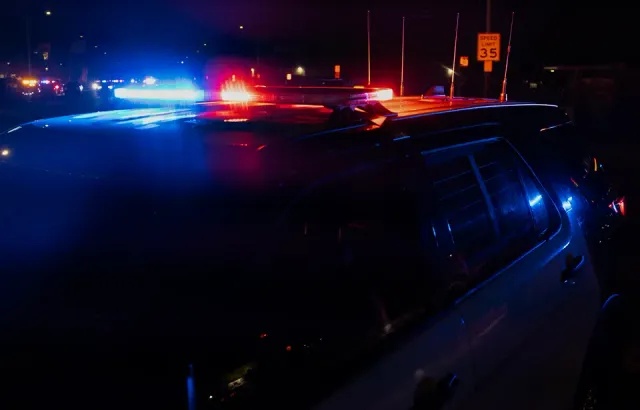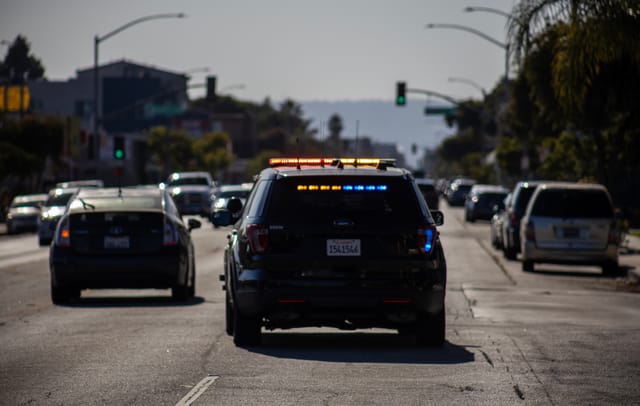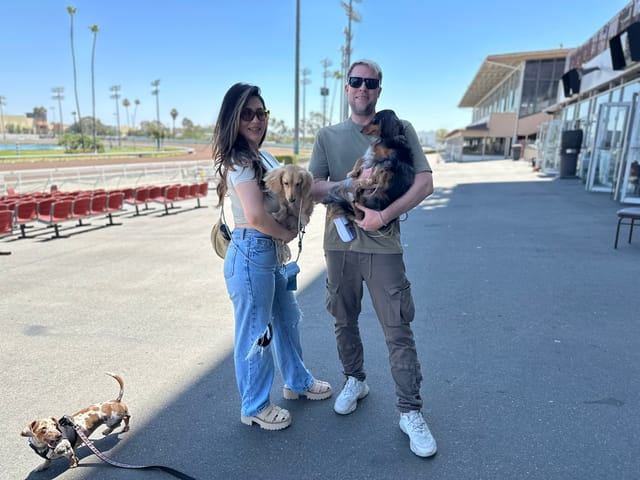Review: Musical Theatre West’s ‘Million Dollar Quartet’ rocks the Carpenter Center
Johnny Cash, Jerry Lee Lewis, Carl Perkins and Elvis Presley are reawakening 1950s rockabilly at the Carpenter Performing Arts Center through April 28.
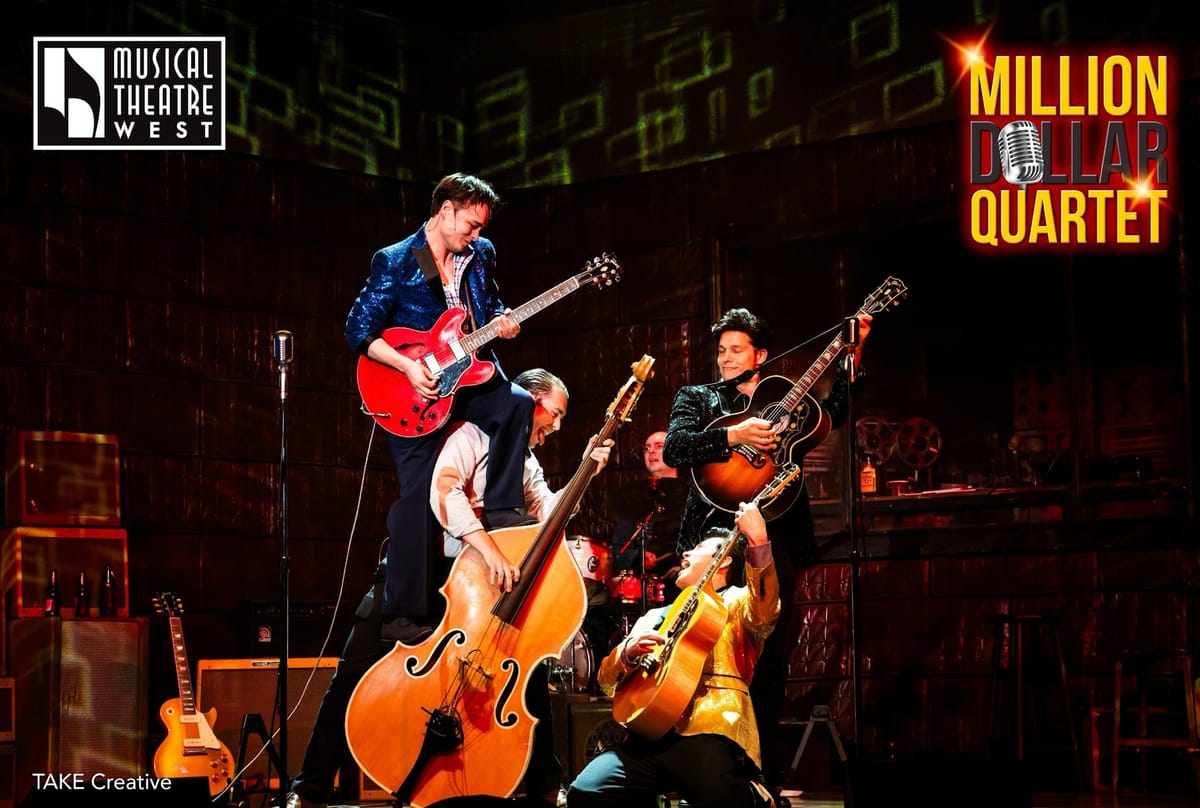
On a cold Dec. 4, 1956, four now legendary musicians happened to meet in a small Memphis recording studio. “Rock and roll” was then a nascent musical genre popular among white youth but rooted in the rhythm-and-blues born of generations of Black experience in the South.
Among the artists at the crest of the rock-and-roll wave were four young white men who grew up poor in the South — one even learning guitar from a Black musician — but now determined to spread their beat-driven guitar gospel to the masses through vinyl records.
Continuing at the Carpenter Performing Arts Center through April 28, Musical Theatre West’s “Million Dollar Quartet” captures the electric energy of these four musicians — Johnny Cash, Jerry Lee Lewis, Carl Perkins and Elvis Presley, plus his girlfriend — as they tear up the stage performing nearly two dozen classic hits.
The show is a must-see for anyone who likes music, particularly 1950s rockabilly, due to the considerable talent and likeability of its performers. “Blue Suede Shoes,” “Fever,” “Long Tall Sally,” “Ghost Riders in the Sky” and “Great Balls of Fire” are just some of the songs for which the cast plays all the music.
There is also enough of a plot to hold things together and create some underlying tension (book by Colin Escott and Floyd Mutrux). Sam Phillips (a congenial Adam Poole), the owner of small Sun Records, has had success launching the careers of Carl Perkins, Johnny Cash and Elvis but now faces competition for these artists from RCA and Columbia Records smelling profits.
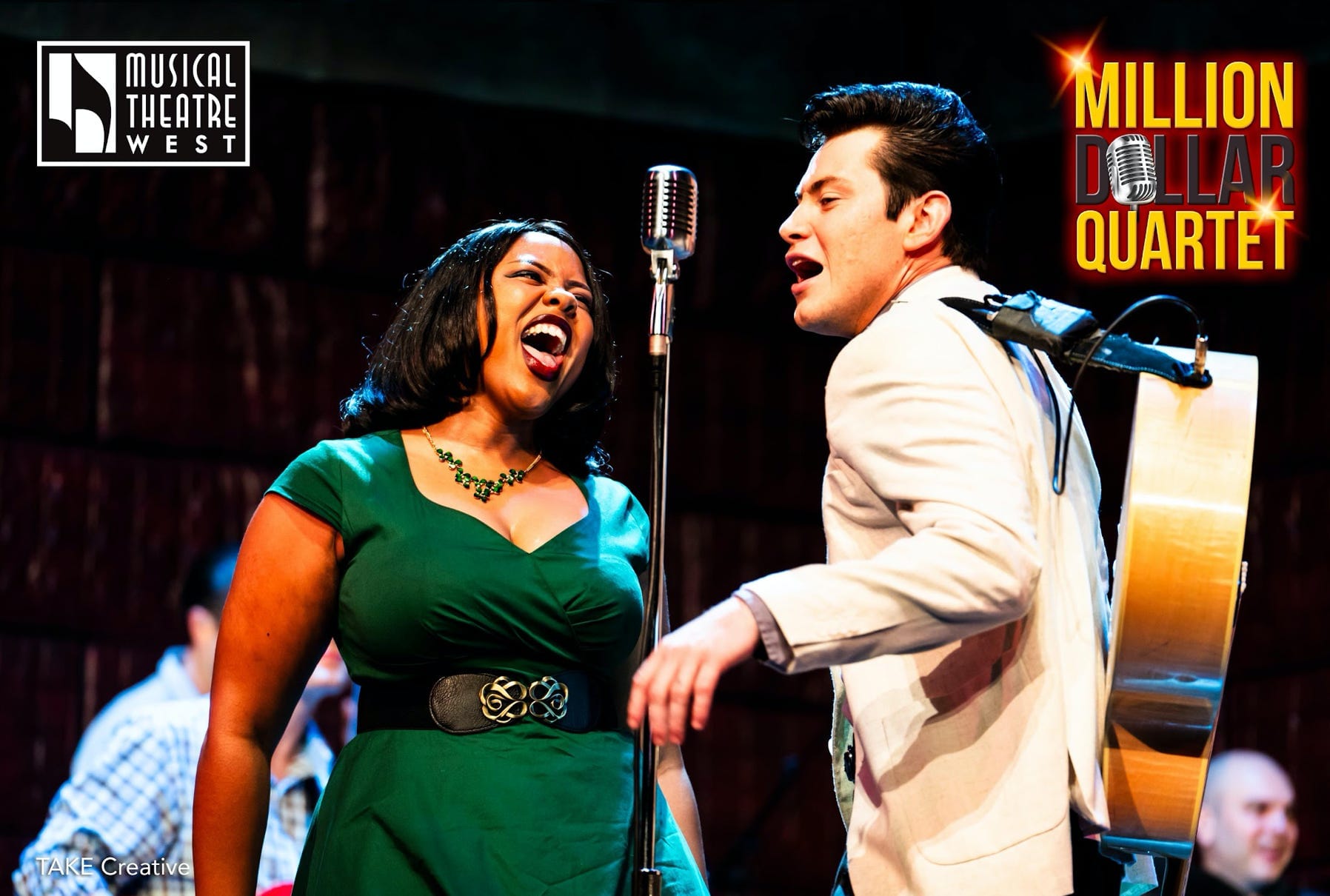
Phillips is now taking a chance on young newcomer Jerry Lee Lewis (Garrett Forrestal), a goofy yet wildly confident piano virtuoso from Louisiana, to add a musical dimension to Carl Perkins’s (Will Riddle) recording session. Of course, the two musicians don’t like each other, especially due to Lewis wanting to interject his lively style into Perkins’s already rollicking songs.
Into this fray arrives Elvis (L J Benet), with singing girlfriend Dyanne (Summer Nicole Greer), wanting to speak with Phillips about coming back to Sun from RCA. And finally, the tall and relatively serious black-clad country artist Johnny Cash (David Elkin Simpson) slips in, who also has news for Phillips, completing the impromptu quartet.
The four musicians — along with Carl’s brother Jay (Benny Lipson) on bass and Fluke Holland on drums (Lonn Hayes, for whom music director David Lamoureux brilliantly fills in as needed) — perform one top tune after another, sometimes solo but often gorgeously together, creating magic on the stage.
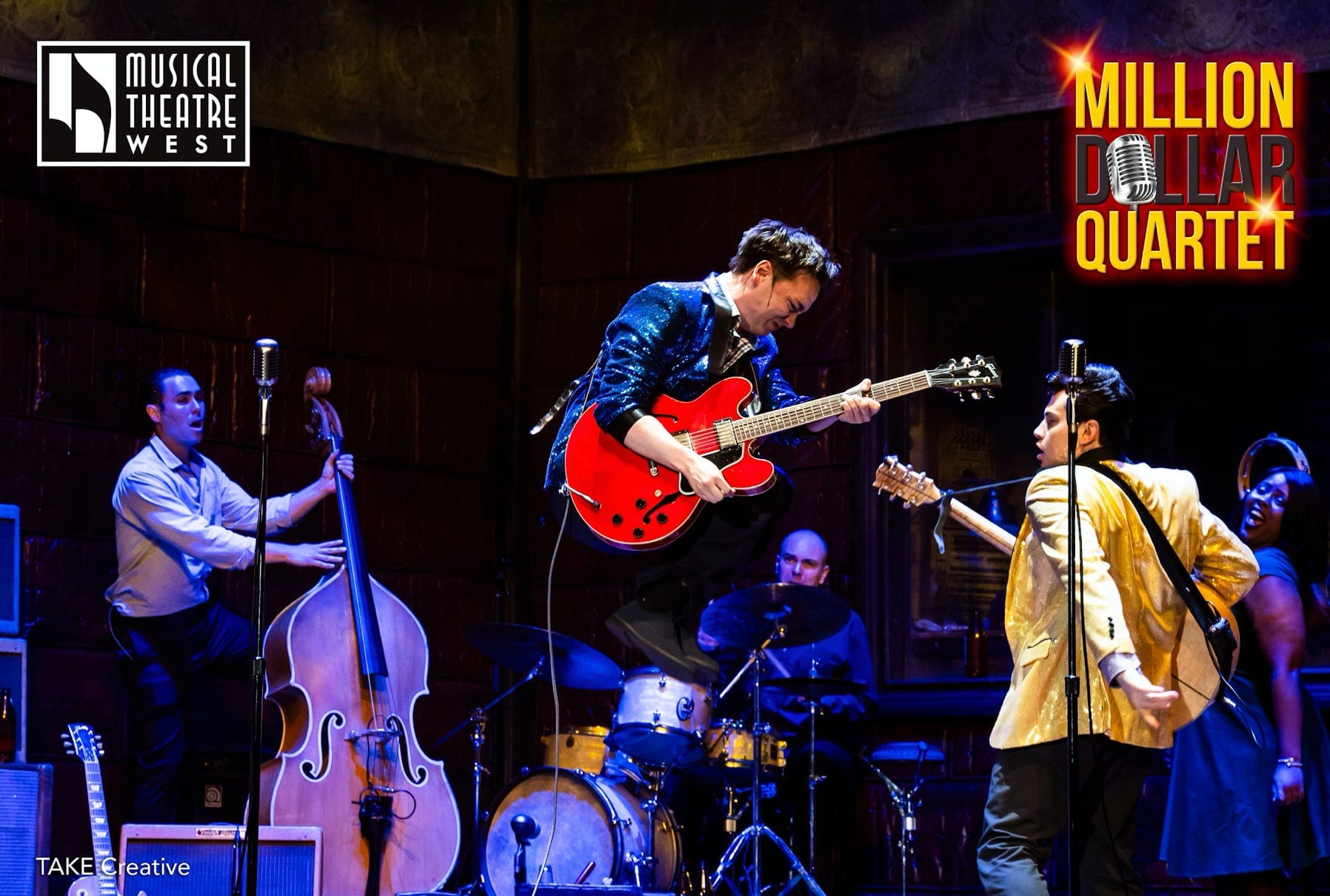
Interspersed among the songs are the gospel-sounding “Peace in the Valley” and “Down by the Riverside,” as well as “Brown Eyed Handsome Man” by Chuck Berry, which one of the musicians mentions was originally titled “Brown Skinned Handsome Man” but the record company made Berry change it.
That, and another brief mention of how their songs carry on a Black music tradition, are the only times the African-American musical connection is made. Rock-and-roll became a predominately white genre, as embodied by these performers, not counting Elvis’s girlfriend Dyanne, who here is Black. However, her real-life counterpart Marilyn Evans was white, which perhaps explains why she doesn’t say anything about it. Nevertheless, all four lads grew up in poverty in the South, with significant religious influence, as information boards in the Carpenter lobby tell the audience. Cash was the son of sharecropping cotton farmers, as was Perkins, who learned guitar and musical style from a fellow Black cotton picker.
Become a Watchdog today.
Lewis’s family mortgaged their farm in Louisiana to buy him a piano, though his mother sent him to a seminary so he would only sing evangelical songs (though he was expelled for singing one too secularly, as he says in the musical). Elvis also grew up in poverty and his father went to prison for counterfeiting money.
Thus, the music these young men create seems to come from their souls, conveyed well by the performers. Each sings and plays their instruments with gumption, as directed by Tim Seib, who has also directed this show at other venues.
Riddle as Perkins jumps and kicks spryly while shredding electric guitar. Simpson’s voice as the stalwart Cash goes deeper than you’d think possible, infusing “I Walk the Line” with soulful warmth. Forrestal captures Lewis’s boyish dynamism both banging the piano and leaping on top of it.
Benet as Elvis is uncannily real, or at least the Elvis we know from film and television— his walk, talk, facial expressions, singing, dance moves and piercing gaze. Benet’s rendition of “That’s Alright Mama” is mesmerizing and the finale’s “Hound Dog” soars.
As the sole female, Dyanne is often relegated to the tambourine. And though she has to belt both “Fever” and “I Hear You Knockin,’” the actual sweetness and range of Greer’s voice come across more when she is harmonizing perfectly with the others.
Regardless, all of these performers’ sheer talent and enthusiasm make every song a joy to experience. Continuing through this weekend and next only, “Million Dollar Quartet” is a must-see musical with a “Whole Lotta Shakin’ Goin’ On” and then some.
Musical Theatre West’s “Million Dollar Quartet” continues through April 28 at the Carpenter Performing Arts Center at Cal State Long Beach, 6200 E. Atherton St., Long Beach, with shows Fridays at 8:00 p.m., Saturdays at 2 p.m. and 8 p.m., and Sundays at 1 p.m. and 6 p.m. Tickets start at $28 and can be purchased by calling the MTW box office at 562-856-1999 or visiting Musical.org. Run time is 1 hour and 45 minutes, including intermission.
Anita W. Harris is a theatre reviewer based in Long Beach and a member of the LA Drama Critics Circle. She reviews productions in the LA area and beyond for LATheatrix.com.
We need your support.
Subcribe to the Watchdog today.
The Long Beach Watchdog is owned by journalists, and paid for by readers like you. If independent, local reporting like the story you just read is important to you, support our work by becoming a subscriber.



